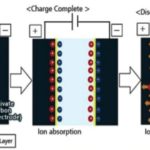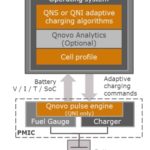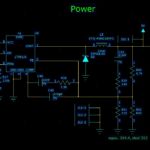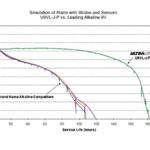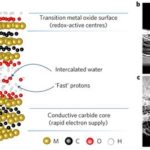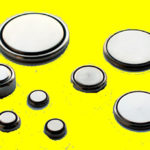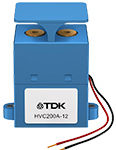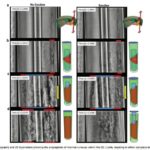The low voltage available from a single supercapacitor forces most applications to use several supercaps in series. Here are the tricks involved in stringing these components together. Robert Chao | Advanced Linear Devices Inc. The average supercapacitor has a maximum charging voltage of between 2.5 and 2.7 V. For many applications a voltage this low […]
batteries
LG smartphones now include adaptive battery charging
QNI and QNS adaptive charging technology can now be found in recently announced LG Mobile V30 and Q6 smartphones. The LG V30 smartphone is a flagship smartphone using the Qualcomm Snapdragon 835 chipset with Quick Charge 3. Use of QNI adaptive charging software from Qnovo, with special hardware acceleration available only in the Snapdragon 835, […]
Top power electronics threads on EDAboard.com – July
(editor’s note: Intrigued by these power electronics problems? Have a question or another solution? Then click the “Read more” link and follow the conversation on EDAboard.com or log in to EDAboard and participate in the power electronics forum threads. Build a constant current circuit – I am building a circuit which will provide me a […]
The difference between industrial-strength and consumer 9-V batteries
Michele Windsor, Ultralife Corp. Today’s 9-V battery was originally invented for transistor radios in the 1950s. It was eventually standardized into the 1604 international ANSI standard. Of course, these batteries now find use in everything from speakers and smoke alarms to walkie-talkies and industrial meters. But some 9-V batteries aren’t built to handle the wide […]
Your cell phone battery may someday have an MXene electrode — and recharge super fast
MXenes are what are dubbed “two-dimensional” inorganic compounds. They consist of few atoms-thick layers of transition metal carbides, nitrides, or carbonitrides. MXenes have only been around since 2011. The interesting thing about MXenes is that they have demonstrated a high capacity for reversible charge storage. So some MXenes have been investigated experimentally for use in […]
Button and coin-cell batteries: Mitigating the big risks of tiny objects
Keith Rhoades, Intertek Group PLC Worldwide, more than 5 billion button and coin-cell batteries are produced every year. In addition to containing a lot of power in a small package, these batteries also introduce potential hazards, particularly to children and the elderly. More than 3,500 incidents of button and coin cell battery ingestion are reported […]
High-voltage contactors handle up to 200 A of continuous current
TDK Corporation presents the new HVC200A bipolar high-voltage contactor for the switching of high DC voltages and currents. It is designed for operating voltages of up to 450 V DC and a high continuous current of 200 A. Arcs that occur when disconnecting the DC load are quickly and safely extinguished with a gas in the hermetically sealed switching […]
Test/measurment suites target high-power/high-voltage and battery deployments
Keysight Technologies, Inc. today announced the launch of a suite of test and measurement solutions for the rapidly growing battery, HEV/EV and HEMS markets. The global electric vehicle market—ranging from mild hybrids to battery electric vehicles and HEMS—are fast growing and very dynamic, with a large number of new application areas and implementation characteristics. Based […]
IoT power calculator helps predict battery life
Premier Farnell has created an IoT Power Calculator that helps developers of IoT (Internet of Things) projects understand the expected battery life of IoT devices and experiment with different strategies to determine their impact on battery life. Users enter basic parameters about their hardware – including different types of microcontroller and batteries – and their […]
Why lithium-ion batteries catch fire: Researchers mimic faults to figure out failure mechanisms
Researchers from NASA, the DoE’s Renewable Lab, and the EU are getting insights into why lithium-ion cells fail thanks to the use of a device that induces short circuits inside the battery itself. The device researchers came up with can induce an internal short circuit on-demand and at a pre-determined location inside commercially available spiral-wound […]

